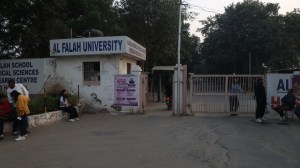Protecting the environment
M C Mehta,who was single-handedly responsible for making environmental degradation a part of public discourse,says it is vital that PILs have no ulterior motive
Gas has leaked. The gas is travelling. I am worried about your lordships life8221;. Environmental lawyer Mahesh Chander Mehta relives what he told the Chief Justice of India P.N. Bhagwati on December 4th,1985. Oleum gas had just leaked from the Shriram Chlorine plant in Najafgarh,and Delhi had panicked.
By a strange coincidence,M.C. Mehta had filed a public interest litigation against the Chlorine plant a month earlier before the gas leak,and was scheduled to argue another case before the Chief Justice of India on December 4th. When the matter came up,Mehta referred to the Oleum gas that had leaked just three hours earlier. The gas leaked at 11 am; the case was listed and heard at 2 pm; the court immediately issued a notice gushes Mehta. No case has been heard this quickly8221;.
Nor perhaps judged so decisively. In siding with Mehta,the Supreme Court punished the company heavily; the entire complex eventually shut down. More far reaching,the Supreme Court created the absolute liability principle 8212; companies engaged in inherently hazardous activities had absolutely no excuse when an accident occurred.
For this Jammu University law graduate,the Oleum Gas Leak case was just one of many landmark environmental cases where his doggedness yielded results. Mehtas zeal coincided with the growth of PILs in India,where the court relaxed locus standi restrictions and enforced a wide range of socio-economic rights. His 1984 PIL on pollution around the Taj Mahal damaging its white marble resulted in the Supreme Court relocating industrial units and even closing down many. The Mathura refinery,a big offender,had to reform. Over the years,M.C. Mehta has expanded the idea of India in other ways 8212; from filing PILs that cleaned up the Ganga to those that introduced CNG to Delhi. The result: cleaner rivers and clearer air in the capital city. For his efforts,Mehta won the Ramon Magsasay award in 1997.
Mehta,who championed green causes long before it was fashionable,has a word of advice for young environmental lawyers. People who file in court must never have any ulterior motives8221;,he says. He also believes that PILs are filed only after proper research. Sometimes I spend two years reading up before filing a PIL,he says. Its very important that you are in a position to honestly assist the court.8221;
Mehta admits that the awareness level for green causes has gone up now. But he insists that environmental litigation will always be an unequal battle. You are fighting people with lots of resources at their command. So the struggle must continue.8221;
- 01
- 02
- 03
- 04
- 05






























